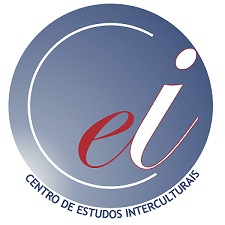The Centre for Intercultural Studies (CEI) of ISCAP-P.PORTO has just launched its most recent e-book: Culturas Partilhadas, Património Partilhado, Responsabilidade Partilhada (coord. Clara Sarmento, with Beatriz Pinto and Isabel Ricardo. Porto: CEI, ISCAP-P.PORTO, 2020. ISBN: 978-989-97851-6-8. 173 pages).
The e-book can be accessed through CEI’s website and includes the chapters:
Introduction
1.
The StreetArtCEI Project: Graffiti and Street Art Routes in Porto and Northern Portugal
Clara Sarmento
2.
The Landscape Iconography of Confinement: The Woods of Bussaco [Shared Aesthetic Responsibility]
Maria de Fátima Lambert
3.
The Urban Mazes of the StreetArtCEI Project
Isabel Ricardo & Luísa Silva
4.
Public Art, Shared Heritage: Results of an Educational Project between ISCAP, MIEC, and Google Arts & Culture
Sara Pascoal, Laura Tallone & Marco Furtado
5.
The StreetMusicCEI Project: Street Music Routes, Urban Revitalization, and Public Space Management in Porto
Gisela Hasparyk Miranda
6.
The Street Arts – from Graffiti to the Urban Art(s)
Pedro Furão
7.
Literary Heritage and Aesthetic and Cognitive Experiences Around Fictional Pandemics in English Language Literature
Rogério Miguel Puga
8.
Translation, Exogenesis, and Heritage
Anxo Fernández Ocampo
The works published in this e-book are a result of the Digital Conference “Shared Cultures, Shared Heritage, Shared Responsibility” organized by CEI for the International Museums and Places Day 2020, which took place on April 17th 2020. The recording of the conference is available on CEI’s YouTube channel.
The shared heritage in this book is material, immaterial, and it’s also human heritage, built for the training of teachers, researchers, students, and the community, so that there are no more doubts about the responsibility of sustained education in research and of research communicated through teaching. With interculturality being the ability to communicate through physical and symbolic borders, this conference-book-project has essentially become intercultural, by crossing the borders of confinement, by persisting in communicating through the isolation. Culture, heritage, arts, literature, teaching, and learning have guided our everyday life in times of uncertainty and have kept goals alive, when not reconstructing them and directing them towards new and even more stimulating paths. More than ever, this book is a part of CEI’s scientific, academic, and intercultural mission.

